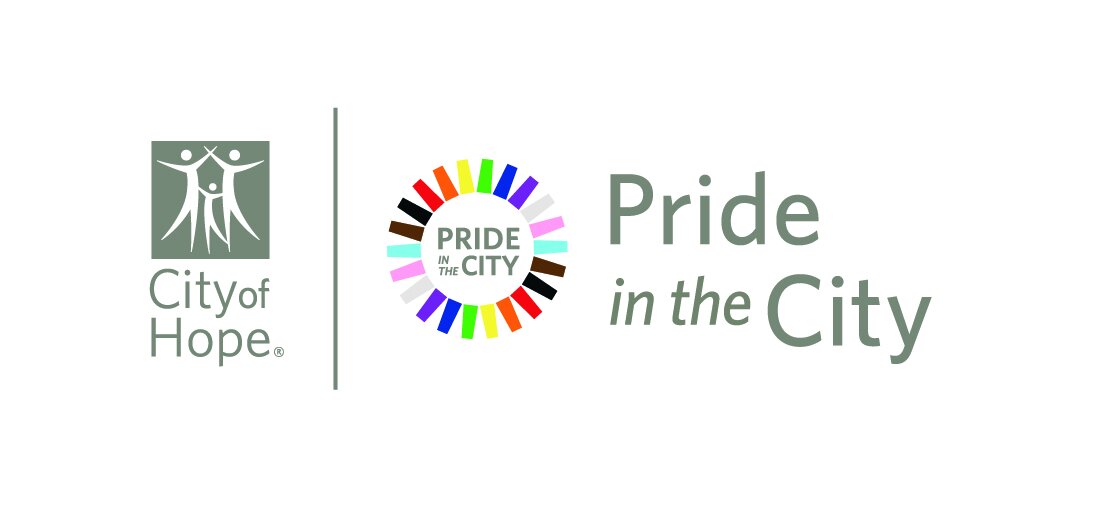LGBTQ+ Resources
LGBTQ+ Competency Resources for Medical Staff
LGBTQ+ Cancer Resources
Please note that sources prior to 2019 may be outdated
Terms & Definitions
Sexual Orientation
The scientifically accurate term for an individual's enduring physical, romantic and/or emotional attraction to members of the same and/or opposite sex, including lesbian, gay, bisexual and heterosexual (straight) orientations. Avoid the offensive term "sexual preference," which is used to suggest that being gay, lesbian or bisexual is voluntary and therefore "curable." People need not have had specific sexual experiences to know their own sexual orientation; in fact, they need not have had any sexual experience at all.
Bisexual, Bi
A person who has the capacity to form enduring physical, romantic and/or emotional attractions to those of the same gender or to those of another gender. People may experience this attraction in differing ways and degrees over their lifetime. Bisexual people need not have had specific sexual experiences to be bisexual; in fact, they need not have had any sexual experience at all to identify as bisexual.
Homophobia
Fear of lesbians and gay men. Intolerance or prejudice is usually a more accurate description of antipathy toward LGBT people.
Biphobia
Fear of bisexuals, often based on stereotypes, including inaccurate associations with infidelity, promiscuity, and transmission of sexually transmitted infections. Intolerance, bias, or prejudice is usually a more accurate description of antipathy toward bisexual people.
Out
A person who self-identifies as lesbian, gay, bisexual and/or transgender in their personal, public, and/or professional lives. For example: Ricky Martin is an out pop star from Puerto Rico. Preferred to openly gay.
Gay
The adjective used to describe people whose enduring physical, romantic and/or emotional attractions are to people of the same sex (e.g., gay man, gay people). Sometimes lesbian (n. or adj.) is the preferred term for women. Avoid identifying gay people as "homosexuals" an outdated term considered derogatory and offensive to many lesbian and gay people.
Asexual
An adjective used to describe people who do not experience sexual attraction (e.g., asexual person). A person can also be aromantic, meaning they do not experience romantic attraction. (For more information, visit asexuality.org.)
LGBT / GLBT
Acronym for "lesbian, gay, bisexual and transgender." LGBT and/or GLBT are often used because they are more inclusive of the diversity of the community. Care should be taken to ensure that audiences are not confused by their use. Ensure that the acronym is spelled out on first usage.
Heterosexual
An adjective used to describe people whose enduring physical, romantic and/or emotional attraction is to people of the opposite sex. Also straight.
Coming Out
A lifelong process of self-acceptance. People forge a lesbian, gay, bisexual or transgender identity first to themselves and then they may reveal it to others. Publicly sharing one's identity may or may not be part of coming out.
Openly Gay
Describes people who self-identify as gay in their personal, public, and/or professional lives. Also openly lesbian, openly bisexual, openly transgender. While accurate and commonly used, the phrase still implies a confessional aspect to publicly acknowledging one's sexual orientation or gender identity. See out above.
Lesbian
A woman whose enduring physical, romantic and/or emotional attraction is to other women. Some lesbians may prefer to identify as gay (adj.) or as gay women. Avoid identifying lesbians as "homosexuals," a derogatory term (see Offensive Terms to Avoid).
Queer
Traditionally a pejorative term, queer has been appropriated by some LGBT people to describe themselves. However, it is not universally accepted even within the LGBT community and should be avoided unless describing someone who self-identifies that way or in a direct quote. When Q is seen at the end of "LGBT," it typically means queer and/or questioning.
Homosexual
Outdated clinical term considered derogatory and offensive by many gay and lesbian people. The Associated Press, New York Times and Washington Post restrict usage of the term. Gay and/or lesbian accurately describe those who are attracted to people of the same sex.
Closeted
Describes a person who is not open about his or her sexual orientation or gender identity. Better to simply refer to someone as not out about being lesbian, gay, bisexual, or transgender.
Outing
The act of publicly declaring (sometimes based on rumor and/or speculation) or revealing another person's sexual orientation or gender identity without that person's consent. Considered inappropriate by a large portion of the LGBT community.
Transgender Specific Terminology
Transgender (adj.)
An umbrella term for people whose gender identity and/or gender expression differs from what is typically associated with the sex they were assigned at birth. People under the transgender umbrella may describe themselves using one or more of a wide variety of terms - including transgender. Some of those terms are defined below. Use the descriptive term preferred by the individual. Many transgender people are prescribed hormones by their doctors to change their bodies. Some undergo surgery as well. But not all transgender people can or will take those steps, and a transgender identity is not dependent upon medical procedures.
Transgender man
People who were assigned female at birth but identify and live as a man may use this term to describe themselves. They may shorten it to trans man. (Note: trans man, not "transman.") Some may also use FTM, an abbreviation for female-to-male. Some may prefer to simply be calledmen, without any modifier. It is best to ask which term an individual prefers.
Transition
Altering one's birth sex is not a one-step procedure; it is a complex process that occurs over a long period of time. Transition includes some or all of the following personal, medical, and legal steps: telling one's family, friends, and co-workers; using a different name and new pronouns; dressing differently; changing one's name and/or sex on legal documents; hormone therapy; and possibly (though not always) one or more types of surgery. The exact steps involved in transition vary from person to person. Avoid the phrase "sex change."
Transsexual (adj.)
An older term that originated in the medical and psychological communities. Still preferred by some people who have permanently changed - or seek to change - their bodies through medical interventions (including but not limited to hormones and/or surgeries). Unlike transgender, transsexual is not an umbrella term. Many transgender people do not identify as transsexual and prefer the word transgender. It is best to ask which term an individual prefers. If preferred, use as an adjective: transsexual woman or transsexual man.
Transgender woman
People who were assigned male at birth but identify and live as a woman may use this term to describe themselves. They may shorten to trans woman. (Note: trans woman, not "transwoman.") Some may also use MTF, an abbreviation for male-to-female. Some may prefer to simply be called women, without any modifier. It is best to ask which term an individual prefers.
Sex Reassignment Surgery (SRS)
Refers to doctor-supervised surgical interventions, and is only one small part of transition (see transition above). Avoid the phrase "sex change operation." Do not refer to someone as being "pre-op" or "post-op." Not all transgender people choose to, or can afford to, undergo medical surgeries.
Gender Dysphoria
In 2013, the American Psychiatric Association released the fifth edition of the Diagnostic and Statistical Manual of Mental Disorders (DSM-V) which replaced the outdated entry "Gender Identity Disorder" with Gender Dysphoria, and changed the criteria for diagnosis. The necessity of a psychiatric diagnosis remains controversial, as both psychiatric and medical authorities recommend individualized medical treatment through hormones and/or surgeries to treat gender dysphoria. Some transgender advocates believe the inclusion of Gender Dysphoria in the DSM is necessary in order to advocate for health insurance that covers the medically necessary treatment recommended for transgender people.
Trans
Used as shorthand to mean transgender or transsexual - or sometimes to be inclusive of a wide variety of identities under the transgender umbrella. Because its meaning is not precise or widely understood, be careful when using it with audiences who may not understand what it means. Avoid unless used in a direct quote or in cases where you can clearly explain the term's meaning in the context of your story.
Cross-dresser
While anyone may wear clothes associated with a different sex, the term cross-dresser is typically used to refer to heterosexual men who occasionally wear clothes, makeup, and accessories culturally associated with women. This activity is a form of gender expression, and not done for entertainment purposes. Cross-dressers do not wish to permanently change their sex or live full-time as women. Replaces the term "transvestite."
PLEASE NOTE: Transgender women are not cross-dressers or drag queens. Drag queens are men, typically gay men, who dress like women for the purpose of entertainment. Be aware of the differences between transgender women, cross-dressers, and drag queens. Use the term preferred by the individual. Do not use the word "transvestite" at all, unless someone specifically self-identifies that way.
Gender Identity Disorder (GID)
outdated, see Gender Dysphoria

